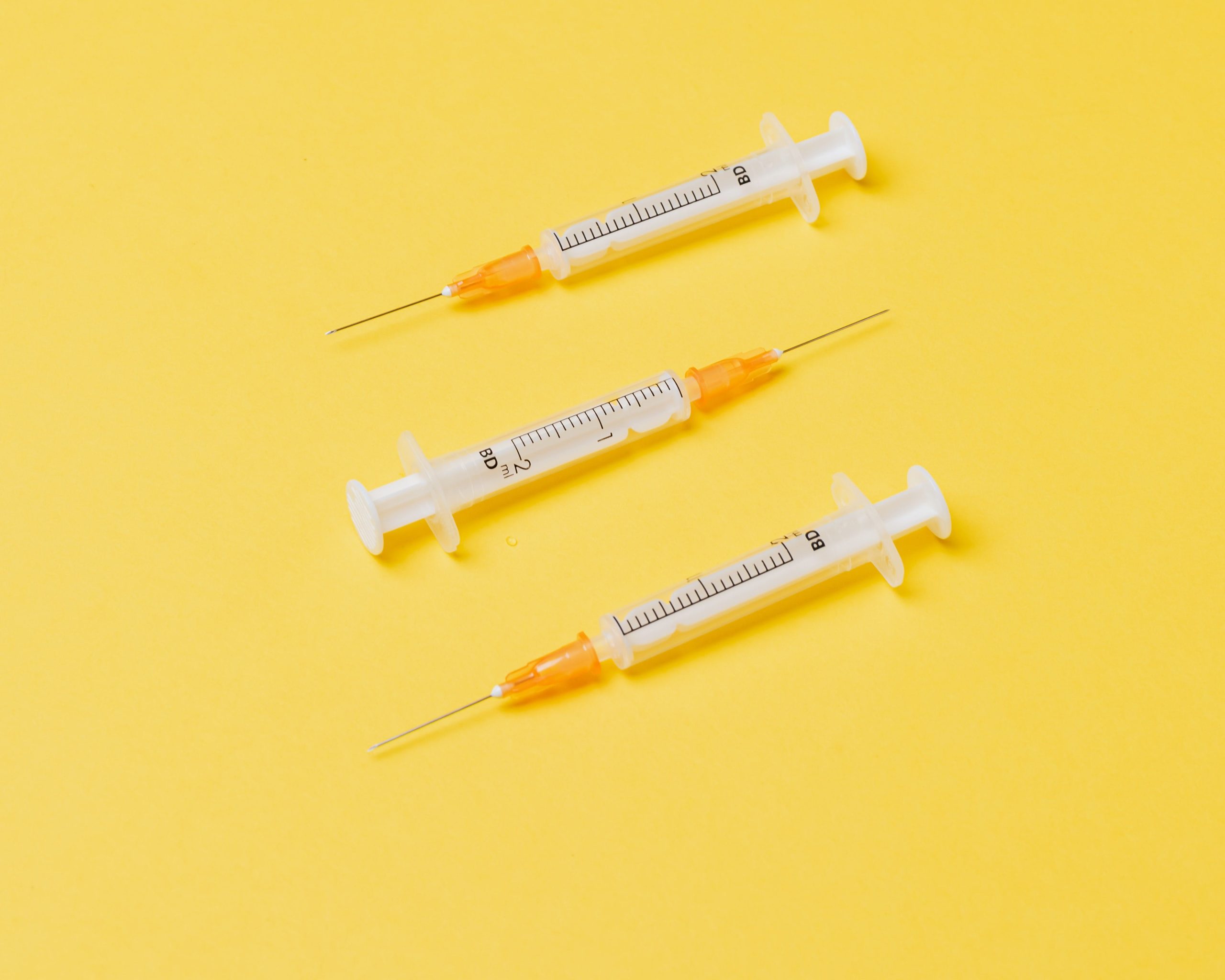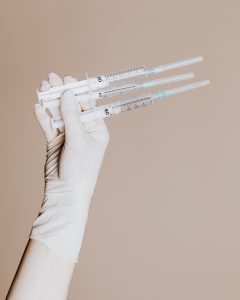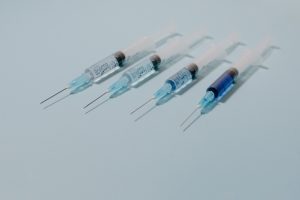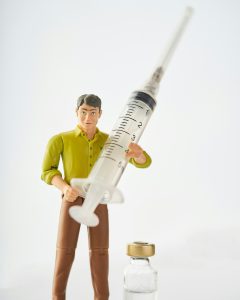
- What is Testosterone Undecanoate?
- Brief History of Testosterone Undecanoate
- How Does Testosterone Undecanoate Work?
- What Are the Potential Benefits for Athletes?
- Are There Legal Implications for Athletes Using Testosterone Undecanoate?
- What Are the Potential Side Effects of Testosterone Undecanoate?
- Are There Legal Implications for Athletes Using Testosterone Undecanoate?
- Is Testosterone Undecanoate Detectable in Drug Tests?
- Can Athletes Legally Use Testosterone Undecanoate for Medical Reasons?
- How Is Testosterone Undecanoate Administered?
- Is Testosterone Undecanoate Addictive?
- Are There Alternatives to Testosterone Undecanoate for Athletes?
What is Testosterone Undecanoate?
Testosterone Undecanoate is a synthetic form of testosterone, a crucial male sex hormone. Unlike some other testosterone formulations, Testosterone Undecanoate is an esterified oral form of the hormone. It is used to address conditions associated with low testosterone levels, such as hypogonadism, by supplementing or replacing the natural testosterone in the body. This medication is typically prescribed for long-term testosterone replacement therapy (TRT) and is administered orally, usually with a fatty meal, to enhance absorption.
Testosterone Undecanoate has a unique characteristic in that it undergoes a two-step enzymatic conversion in the liver, resulting in a prolonged release of testosterone into the bloodstream. This slow-release mechanism allows for less frequent dosing compared to some other testosterone formulations. While Testosterone Undecanoate offers a convenient oral administration option, it is important to note that close medical supervision is necessary to monitor its effectiveness, potential side effects, and to ensure proper dosage adjustments based on individual response and health status.
Brief History of Testosterone Undecanoate
Testosterone Undecanoate has a history closely tied to the development of testosterone replacement therapy (TRT) and the exploration of various testosterone formulations to address conditions associated with low testosterone levels.
The development of testosterone esters, including Testosterone Undecanoate, can be traced back to efforts in the mid-20th century to create synthetic versions of testosterone with improved pharmacokinetic properties. Researchers aimed to develop formulations that would provide sustained and controlled release of testosterone in the body.
The oral formulation of Testosterone Undecanoate was introduced to overcome some of the limitations associated with injectable testosterone preparations. The unique characteristic of undergoing a two-step enzymatic conversion in the liver allows for a prolonged release of testosterone into the bloodstream, reducing the frequency of administration.
Over time, Testosterone Undecanoate gained acceptance as an option for testosterone replacement therapy, particularly for individuals who prefer oral administration or face challenges with frequent injections. Its use has been documented in medical literature for the treatment of conditions such as hypogonadism.
It’s important to note that, like other forms of testosterone replacement therapy, the use of Testosterone Undecanoate is typically guided by medical supervision, and its prescription is based on an individual’s specific medical needs and response to treatment.
| Year | Development |
|---|---|
| Mid-20th Century | Exploration of synthetic testosterone formulations begins. |
| 1970s | Development of Testosterone Undecanoate as an oral testosterone ester. |
| Late 20th Century | Introduction of Testosterone Undecanoate for testosterone replacement therapy (TRT). |
| Present | Testosterone Undecanoate used in medical settings for treating conditions like hypogonadism. |
How Does Testosterone Undecanoate Work?
Testosterone Undecanoate works by supplementing or replacing the naturally occurring testosterone in the body. It is a synthetic form of testosterone, the primary male sex hormone responsible for various physiological functions. Testosterone Undecanoate is unique in that it is an esterified oral form of testosterone.
Here’s how Testosterone Undecanoate works:
- Oral Administration:
- Unlike many other forms of testosterone that are administered through injections, Testosterone Undecanoate is taken orally. It is typically administered with a fatty meal to enhance absorption.
- Absorption in the Intestine:
- Once ingested, Testosterone Undecanoate is absorbed in the small intestine. It is then transported to the liver through the portal vein.
- Two-Step Enzymatic Conversion:
- In the liver, Testosterone Undecanoate undergoes a two-step enzymatic conversion. First, it is converted to dihydrotestosterone (DHT), and then it undergoes further conversion to testosterone. This unique conversion process results in a prolonged release of testosterone into the bloodstream.
- Systemic Distribution:
- The released testosterone enters the bloodstream and is distributed throughout the body. It binds to androgen receptors in various tissues, exerting its effects.
- Physiological Effects:
- Testosterone has a wide range of physiological effects, including the development and maintenance of male reproductive tissues, promotion of muscle and bone growth, regulation of libido, and influencing mood and energy levels.
- Sustained Testosterone Levels:
- The slow and sustained release of testosterone from Testosterone Undecanoate allows for a more consistent and prolonged elevation of testosterone levels compared to some other formulations.
It’s important to note that the use of Testosterone Undecanoate should be under the supervision of a healthcare professional. The dosage and frequency of administration are determined based on an individual’s medical condition, response to treatment, and overall health. Regular monitoring is essential to ensure therapeutic efficacy and manage potential side effects.
What Are the Potential Benefits for Athletes?
While Testosterone Undecanoate is primarily prescribed for medical purposes, some athletes may consider or misuse it for perceived performance-enhancing benefits. It’s important to note that such use is against the rules of most sports organizations and can lead to serious consequences. Here are potential perceived benefits that athletes might associate with the use of Testosterone Undecanoate:
- Increased Muscle Mass:
- Testosterone is known to promote protein synthesis and the development of lean muscle mass. Some athletes may believe that increased testosterone levels could lead to greater gains in muscle size and strength.
- Enhanced Strength:
- Testosterone plays a role in muscle development, and athletes may associate higher testosterone levels with increased strength and power.
- Improved Recovery:
- Testosterone is believed to contribute to muscle recovery and repair. Athletes may think that higher testosterone levels could lead to faster recovery after intense training sessions.
- Increased Endurance:
- While not the primary function of testosterone, some athletes may associate improved red blood cell production (influenced by testosterone) with enhanced endurance.
- Mental Focus and Aggression:
- Testosterone is associated with mood and motivation, and some athletes may believe that increased testosterone levels could enhance mental focus, aggression, and competitiveness during competitions.
It’s crucial to emphasize that the misuse of Testosterone Undecanoate or any other performance-enhancing substance is not only unethical but also comes with serious health risks. The potential side effects and legal consequences far outweigh any perceived benefits. Athletes should prioritize legal, ethical, and health-conscious training methods for long-term success in their respective sports.
Are There Legal Implications for Athletes Using Testosterone Undecanoate?
Yes, there are legal implications for athletes using Testosterone Undecanoate or any other form of testosterone without a valid medical prescription. The use of testosterone or other anabolic steroids for the purpose of performance enhancement is generally prohibited by most sports organizations and anti-doping agencies.
Athletes are subject to anti-doping regulations that include testing for performance-enhancing substances, including testosterone and its synthetic derivatives. If an athlete tests positive for Testosterone Undecanoate without a valid Therapeutic Use Exemption (TUE) or medical justification, they may face serious consequences, including:
- Suspension:
- Athletes who test positive for prohibited substances, including Testosterone Undecanoate, may be suspended from competition for a specified period.
- Loss of Titles and Medals:
- If an athlete is found to have used prohibited substances during a competition where they achieved success, they may be stripped of titles, medals, and any honors earned during that time.
- Fines:
- Some sports organizations may impose financial penalties on athletes who violate anti-doping rules.
- Bans from Future Competitions:
- Depending on the severity of the violation, athletes may face bans from future competitions, impacting their ability to participate in their sport.
- Damage to Reputation:
- The discovery of doping violations can result in significant damage to an athlete’s reputation, affecting endorsement deals, sponsorships, and overall public perception.
It’s essential for athletes to be aware of and comply with the anti-doping regulations specific to their sport. Any use of Testosterone Undecanoate or other substances that enhance performance should be based on a legitimate medical prescription and within the rules and procedures outlined by anti-doping authorities. Athletes should seek guidance from healthcare professionals and anti-doping officials to ensure compliance and avoid serious legal and professional consequences.
What Are the Potential Side Effects of Testosterone Undecanoate?
The use of Testosterone Undecanoate, like any medication, can be associated with potential side effects. It’s important to note that the likelihood and severity of side effects can vary among individuals, and not everyone will experience them. Additionally, the use of Testosterone Undecanoate should be under the supervision of a qualified healthcare professional. Common potential side effects include:
- Hormonal Changes:
- Testosterone supplementation can lead to hormonal imbalances, resulting in side effects such as acne, oily skin, or changes in libido.
- Gastrointestinal Issues:
- Oral administration of Testosterone Undecanoate may cause gastrointestinal discomfort, including stomach pain or indigestion.
- Fluid Retention:
- Some individuals may experience fluid retention, leading to swelling in the ankles or feet.
- Headache:
- Headaches can occur as a side effect of testosterone supplementation.
- Elevated Red Blood Cell Count:
- Testosterone can stimulate the production of red blood cells, potentially leading to an increase in hematocrit levels. This may pose a risk of blood clots.
- Sleep Apnea:
- Testosterone use has been associated with an increased risk of sleep apnea, a condition characterized by interrupted breathing during sleep.
- Liver Issues:
- Prolonged use or misuse of testosterone may potentially impact liver function.
- Psychological Effects:
- Changes in mood, including increased aggression or irritability, may occur in some individuals.
- Decreased Sperm Production:
- Exogenous testosterone can suppress the body’s natural production of sperm, leading to a decrease in fertility.
It’s crucial for individuals using Testosterone Undecanoate to undergo regular medical monitoring to assess its effectiveness and manage any potential side effects. The dosage and frequency of administration should be determined by a healthcare professional based on an individual’s medical condition, response to treatment, and overall health. Any concerns or observed side effects should be promptly discussed with the prescribing healthcare provider.
Are There Legal Implications for Athletes Using Testosterone Undecanoate?
Yes, there are legal implications for athletes using Testosterone Undecanoate or any other form of testosterone without a valid medical prescription. The use of testosterone or other anabolic steroids for the purpose of performance enhancement is generally prohibited by most sports organizations and anti-doping agencies.
Athletes are subject to anti-doping regulations that include testing for performance-enhancing substances, including testosterone and its synthetic derivatives. If an athlete tests positive for Testosterone Undecanoate without a valid Therapeutic Use Exemption (TUE) or medical justification, they may face serious consequences, including:
- Suspension:
- Athletes who test positive for prohibited substances, including Testosterone Undecanoate, may be suspended from competition for a specified period.
- Loss of Titles and Medals:
- If an athlete is found to have used prohibited substances during a competition where they achieved success, they may be stripped of titles, medals, and any honors earned during that time.
- Fines:
- Some sports organizations may impose financial penalties on athletes who violate anti-doping rules.
- Bans from Future Competitions:
- Depending on the severity of the violation, athletes may face bans from future competitions, impacting their ability to participate in their sport.
- Damage to Reputation:
- The discovery of doping violations can result in significant damage to an athlete’s reputation, affecting endorsement deals, sponsorships, and overall public perception.
It’s essential for athletes to be aware of and comply with the anti-doping regulations specific to their sport. Any use of Testosterone Undecanoate or other substances that enhance performance should be based on a legitimate medical prescription and within the rules and procedures outlined by anti-doping authorities. Athletes should seek guidance from healthcare professionals and anti-doping officials to ensure compliance and avoid serious legal and professional consequences.
Is Testosterone Undecanoate Detectable in Drug Tests?
Yes, Testosterone Undecanoate is detectable in drug tests, particularly in the context of anti-doping testing conducted by sports organizations and competitions. Testing for testosterone and its synthetic derivatives is common in sports to ensure fair competition and to detect the use of performance-enhancing substances.
Anti-doping agencies, such as the World Anti-Doping Agency (WADA) and various national anti-doping organizations, use sophisticated testing methods to detect the presence of prohibited substances, including Testosterone Undecanoate, in athletes’ samples. The detection of exogenous (external) testosterone involves analyzing the ratio of testosterone to epitestosterone (T/E ratio) in a urine sample.
Athletes are typically subject to various forms of drug testing, including urine and blood tests. The normal T/E ratio in the general population is approximately 1:1, but anti-doping authorities have established a threshold T/E ratio of 4:1. If an athlete’s T/E ratio exceeds this threshold, further analysis may be conducted to determine whether the elevated ratio is due to natural variations or the use of exogenous testosterone, such as Testosterone Undecanoate.
It’s important for athletes to be aware that the use of Testosterone Undecanoate or any other substances without a valid Therapeutic Use Exemption (TUE) or medical justification is considered doping and can result in serious consequences, including suspension, loss of titles and medals, fines, and damage to one’s reputation. Athletes should always comply with anti-doping regulations and consult with medical professionals to ensure that any medications they use are within the rules of their respective sports organizations.
Can Athletes Legally Use Testosterone Undecanoate for Medical Reasons?
Athletes can legally use Testosterone Undecanoate or any other form of testosterone for legitimate medical reasons if prescribed by a licensed healthcare professional to address a documented medical condition. Testosterone replacement therapy (TRT) is a medical intervention commonly prescribed for individuals diagnosed with hypogonadism, a condition characterized by abnormally low testosterone levels.
For athletes to use Testosterone Undecanoate or any testosterone replacement therapy legally, the following conditions typically apply:
- Valid Medical Prescription:
- Athletes must have a valid medical prescription from a licensed healthcare provider for the use of Testosterone Undecanoate. The prescription should be based on a thorough evaluation of the individual’s health, hormonal levels, and the presence of any medical conditions.
- Documentation of Medical Need:
- The athlete should have documented evidence of a medical need for testosterone replacement, such as blood tests indicating low testosterone levels and symptoms of hypogonadism.
- Disclosure to Anti-Doping Authorities:
- Athletes using prescribed testosterone replacement therapy are often required to disclose this information to anti-doping authorities, such as WADA (World Anti-Doping Agency) or national anti-doping agencies. This is typically done through a Therapeutic Use Exemption (TUE) process.
- Compliance with Anti-Doping Rules:
- Athletes must comply with the anti-doping rules and regulations of their respective sports organizations. This includes adhering to the specific procedures and requirements for obtaining a Therapeutic Use Exemption if using prescribed testosterone.
It’s crucial for athletes to follow the proper procedures and adhere to the guidelines set by anti-doping authorities and sports organizations. The misuse of testosterone or any other performance-enhancing substances without a valid medical justification is against the rules of most sports organizations and can result in serious consequences, including suspension, loss of titles and medals, fines, and damage to one’s reputation. Athletes should prioritize legal, ethical, and sustainable approaches to training and performance optimization.
How Is Testosterone Undecanoate Administered?
Testosterone Undecanoate is typically administered orally in the form of capsules or tablets. Unlike many other forms of testosterone, which are commonly administered through intramuscular injections, Testosterone Undecanoate is designed for absorption through the gastrointestinal tract.
Here are general steps for the administration of oral Testosterone Undecanoate:
- Oral Administration:
- The medication is taken orally with a meal. It is usually recommended to take the capsules or tablets with a fatty meal to enhance absorption.
- Swallow Whole:
- The capsules or tablets should be swallowed whole without chewing or crushing. Breaking or crushing the medication may affect its absorption and effectiveness.
- Consistent Timing:
- It is often advised to take Testosterone Undecanoate at the same time each day to maintain consistent blood levels of testosterone.
- Medical Supervision:
- The use of Testosterone Undecanoate should be under the supervision of a qualified healthcare professional. The dosage and frequency of administration are determined based on an individual’s medical condition, response to treatment, and overall health.
- Monitoring:
- Regular monitoring of hormone levels and overall health is important to assess the effectiveness of the treatment and manage any potential side effects.
It’s crucial for individuals using Testosterone Undecanoate to follow the specific instructions provided by their healthcare provider. The oral administration of Testosterone Undecanoate is designed to provide a slow and sustained release of testosterone into the bloodstream, offering a more convenient option for individuals who may prefer oral medication over injections.
Is Testosterone Undecanoate Addictive?
Testosterone Undecanoate itself is not considered addictive in the same way that substances like opioids or certain recreational drugs can be. Testosterone is a naturally occurring hormone in the body, and when used appropriately for medical reasons, it serves to address conditions associated with low testosterone levels, such as hypogonadism.
However, it’s important to distinguish between the legitimate medical use of Testosterone Undecanoate and the potential for misuse or abuse. Some individuals, including athletes and bodybuilders, may misuse testosterone or its derivatives for non-medical purposes, seeking performance enhancement or cosmetic effects. Misuse of testosterone, even when prescribed for medical reasons, can lead to adverse effects and health risks.
While physical dependence on testosterone is not as well-established as with certain substances, the misuse of testosterone can result in psychological dependence. Individuals may become reliant on the perceived benefits of testosterone, such as increased muscle mass or improved athletic performance.
It’s crucial for individuals using Testosterone Undecanoate to do so under the supervision of a healthcare professional and strictly for legitimate medical reasons. Misuse or abuse of testosterone is not only against the rules of most sports organizations but can also lead to serious health consequences, including hormonal imbalances, cardiovascular issues, liver damage, and psychological effects. Any use of testosterone should be based on a valid medical prescription and adhere to ethical and legal standards.
Are There Alternatives to Testosterone Undecanoate for Athletes?
Athletes seeking alternatives to Testosterone Undecanoate for performance enhancement should prioritize legal and ethical methods to optimize their training, recovery, and overall well-being. It’s important to note that the use of testosterone or other anabolic steroids without a valid medical prescription is considered doping and is against the rules of most sports organizations.
Legal and ethical alternatives to Testosterone Undecanoate for athletes include:
- Optimized Training Programs:
- Working with qualified coaches and trainers to develop personalized and effective training programs can lead to improved performance without the need for performance-enhancing substances.
- Nutrition and Supplements:
- Proper nutrition, including adequate protein intake and balanced macronutrients, is crucial for athletic performance. Legal and safe dietary supplements may also support training and recovery.
- Recovery Strategies:
- Prioritizing adequate rest, sleep, and recovery strategies such as massage, stretching, and ice baths can enhance an athlete’s ability to perform optimally.
- Legal Performance Enhancers:
- Some legal performance enhancers, such as caffeine or creatine, have been shown to have positive effects on athletic performance and are widely accepted in the sports community.
- Mental Training:
- Mental aspects, such as focus, motivation, and mental resilience, are crucial for athletic success. Engaging in mental training techniques, including visualization and goal-setting, can be beneficial.
- Medical Evaluation:
- Athletes experiencing symptoms of fatigue, low energy, or decreased performance should undergo a thorough medical evaluation to identify and address any underlying health issues.
It’s important for athletes to prioritize their health and long-term well-being while adhering to the rules and regulations of their respective sports organizations. Seeking shortcuts through the misuse of substances like Testosterone Undecanoate can have serious consequences, both in terms of health risks and potential disciplinary actions. Athletes should always consult with healthcare professionals and follow ethical training methods to achieve their goals.






